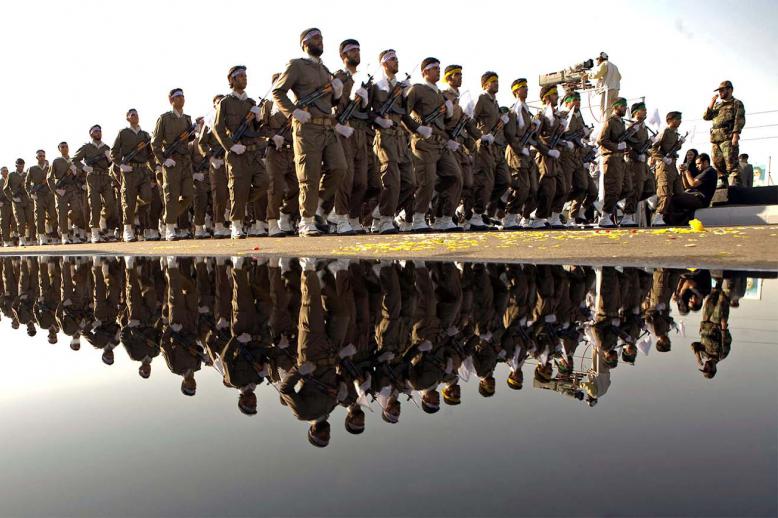After 70 years, it’s time for a new Palestinian narrative
On May 14, Israelis will celebrate and Palestinians will mourn, as they each have for the past 70 years. Israelis’ Independence Day coincides with the Palestinians’ Yawm al-Nakba — Day of Catastrophe — signifying the traumatic loss of their land and their homes inside what is today the country of Israel.
For 70 years, Israelis and Palestinians have been locked in a fierce struggle: For Israelis, first to solidify, later to expand and today to monopolise control over the land west of the Jordan River; for Palestinians, first to erase the Israeli state, later to create an independent Palestinian state alongside it and today to end the Israelis’ occupation and oppression.
The struggle has included long periods of relative peace but those times have been bracketed by bloody and ugly bouts of violence, the kind of violence that occurs when enemies dehumanise each other. Far more Palestinians than Israelis have died in these confrontations. Innocent Israelis’ deaths have been rarer but dramatic; think terror attacks against Tel Aviv cafes. Innocent Palestinians’ deaths have been routine and explained away by Israel as “self-defence.”
Israel has won the military aspect of the struggle hands down. In 1948, Israel was an embattled new country facing invading Arab armies just to hold onto a piece of the land west of the Jordan. Today, the Israeli state monopolises coercive, political, territorial and economic power over 100% of the land west of the Jordan. It has been supported in this effort by a compliant United States, which has gifted tens of billions of dollars and the most advanced weaponry to Israel’s cause.
The bloodshed, violence and mutual terror are not the real struggle, however. It is one over narratives. Whose story is right? Whose story is more just, more deserving of world support?
Here again, Israel has been the winner. Philip Gourevitch, in his brilliant account of the genocide in Rwanda, wrote: “Power consists in the ability to make others inhabit your story of their reality.” For 70 years, Israel and its legion of supporters have exerted this narrative form of power over the Palestinians to a remarkable degree. Consider some of the commonly held tropes about Palestinians and their struggle:
“They want to drive Israel into the sea.”
“They weren’t driven from their land. They left on their
own accord.”
“They have no leaders we can negotiate with.”
“Their children will only grow up to be terrorists.”
“Palestinians did not even exist until Israel was founded.”
“A Palestinian state would be a threat to Israel and a hotbed of radicalism.”
Each of these tropes and hundreds more are examples of how Israel has cleverly made Palestinians inhabit the Israeli narrative about who they, the Palestinian people, are and what they aspire to. Much of the world, especially in the United States, has embraced the Israeli narrative, so that 14-year-old Palestinians who throw rocks at heavily armed Israeli soldiers are cast as “militants,” the implication being that to shoot them — in the legs or even the head — is justified.
So, what should Palestinians do?
First, the Palestinian people — and at this point it’s up to the people, not the leaders — should accept that: 1) Israel will never end its oppression and domination of Palestinians unless it is forced to do so; 2) the United States never was and never will be a fair mediator and in any event is in general retreat from the Middle East; 3) European leftists will lend moral support but European countries are impotent and laden with the dual baggage of anti-Semitism and anti-Islamism; and 4) Moscow has the power to disrupt the world but not to construct the world.
In other words, outside help is not on the way.
Second, Palestinians never will win the military battle and they should immediately call a halt to all forms of violence. For not only can they never win but by continuing they reinforce the Israeli narrative; they become co-conspirators in Israel’s narrative power.
Third, Palestinians must recognise that the real power in this struggle is the power of narrative. Despite the battlefield prowess of the Israeli military and its unquestioned support from Washington, it is Israel’s narrative power that has rendered it dominant.
It is possible to imagine a narrative that, if bolstered by actions and behaviours, could directly challenge the Israeli narrative. It would go like this:
Between the Jordan River and the Mediterranean live approximately equal numbers of two peoples — Palestinian Arabs and Israeli Jews. Only Israeli Jews enjoy full civil and human rights, as well as control over virtually 100% of coercive, political and economic power and resources. Such a situation is fundamentally unjust and is conducive to violence, extremism and instability. It cannot continue.
Several options are on the table: two states, one state, a binational state, a confederation. We, the Palestinian people, are willing to discuss all of them. So long as the ultimate outcome is a just one.
This article was originally published in The Arab Weekly.







